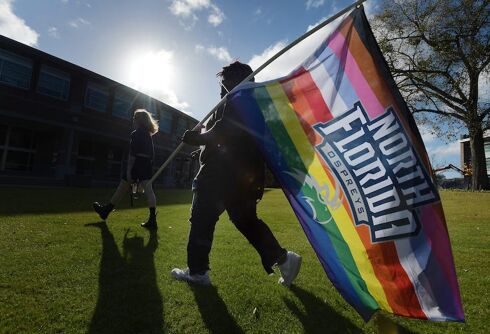NBC News reports that researchers at the David Geffen School of Medicine of the University of California, Los Angeles think they may be one step closer to finding the gay gene.
“To our knowledge, this is the first example of a predictive model for sexual orientation based on molecular markers,” said lead researcher Tuck Ngun.
The study, which was conducted earlier this year, looked at 47 pairs of adult male twins. In 37 of the pairs, one of the brothers identified as homosexual and the other didn’t. In 10 pairs, both brothers said they were gay.
After first identifying the gene code that may affect a person’s sexual orientation, researchers took things a step further and tested the methylation patterns of each participants’ genes. Methylation is the mechanism by which genes are turned on and off. A computer then guessed whether or not the participant was homosexual. It was accurate seven times out of 10.
Never Miss a Beat
Subscribe to our newsletter to stay ahead of the latest LGBTQ+ political news and insights.
“Sexual attraction is such a fundamental part of life, but it’s not something we know a lot about at the genetic and molecular level,” Ngun said. “I hope that this research helps us understand ourselves better and why we are the way we are.”
But not everyone is convinced.
“The observed epigenetic changes, particularly if from blood DNA, unlikely determine the complex behaviors, such as sexual orientation,” said Dr. Peng Jin, a professor of human genetics at Emory University.
“My gut feeling is that, as the complete story unfolds, the association may not be quite as simple as the summary and press release suggest,” added genetics professor Darren Griffin of the University of Kent. “The important thing to note however is the mounting evidence that homosexuality is a perfectly normal trait segregating in human populations.”
Interestingly, after making the findings, Ngun, who is openly gay, decided to abandon the research out of fear that, if developed further, it could be used to screen fetuses or punish or persecute gay people.
“I just left the lab last week,” he said. “I don’t believe in the censoring of knowledge, but given the potential for misuse of the information, it just didn’t sit well with me.”













